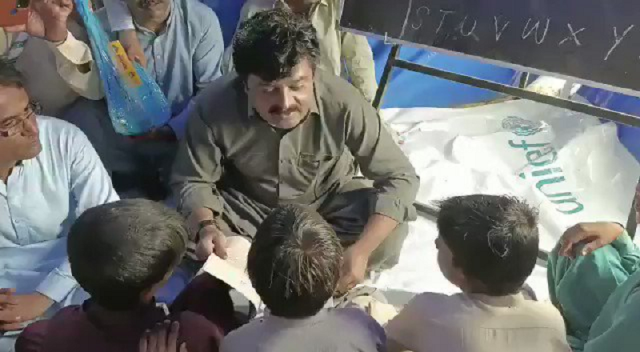'92% of education budget spent on salaries'
Youth Conference calls for redefining education as means of protection

Stakeholders agreed on Saturday on the need to redefine education as a means of protection, both in its creation and use. They were speaking at a youth conference on 'Challenges and Solutions for 21st Century Youth,' organised by the Sindh Sports and Youth Affairs Department.
Education Minister Syed Sardar Ali Shah said that education should be seen as a source of security. "Education instills a sense of protection. We want to make it a source of security for everyone. Only when our youth feel secure can they rise above discrimination and work toward protecting others," he added.
The minister pointed to systemic issues within the education sector, including outdated policies and a lack of prioritisation by the state. "The root cause of these issues lies in the outdated policies of the state, where education was never truly prioritized," he added. "During pro-democracy movements, there were deliberate efforts to undermine Sindh's education system. Even today, we continue to fight for constitutional rights."
Minister Shah referred to the disproportionate budgetary allocations for education in Sindh, stating that 92% is spent on salaries and operational costs, leaving only 2% for developmental projects. He acknowledged the province's shortcomings but called on society to take collective responsibility. "We all need to play our part," he added.
Shah also touched on the issue of population growth and its impact on education. He criticised the lack of seriousness regarding population control, noting that 25 million children are currently paying for their education, while an equal number are out of school.
"It is tragic that we lack accurate statistics, and we only address our problems much later," he said, also pointing to the devastating impact of climate change. "Rains and floods in Sindh have destroyed 20,000 schools. Although the federal government has agreed to help rehabilitate these schools, the process will take three years, and only 4,000 schools are expected to be restored in that time."
Despite these challenges, Minister Shah outlined some of the progress made in Sindh's education system. "We have introduced significant reforms, including the first-ever teaching licence policy and the recruitment of over 60,000 teachers on merit. We are also integrating technical education alongside the traditional system and establishing 3,000 centers for non-formal, technical, and vocational education for out-of-school children."
Other panelists also offered their insights. Sadiqa Salahuddin, Executive Director of the Indus Resource Centre, praised the protection of girls' education in Sindh but stressed the need to further promote a sense of security. "Parents want to educate their children, and better results can be achieved by minimizing resource misuse and ensuring accountability," she said.
Intellectual Jami Chandio criticised the state's reduction of education to mere knowledge transfer, which he argued has discouraged critical thinking and contributed to the rise of extremism. "In the 21st century, education itself is security," he added. "We talk about a security state, yet we are the most insecure ourselves."



















COMMENTS
Comments are moderated and generally will be posted if they are on-topic and not abusive.
For more information, please see our Comments FAQ